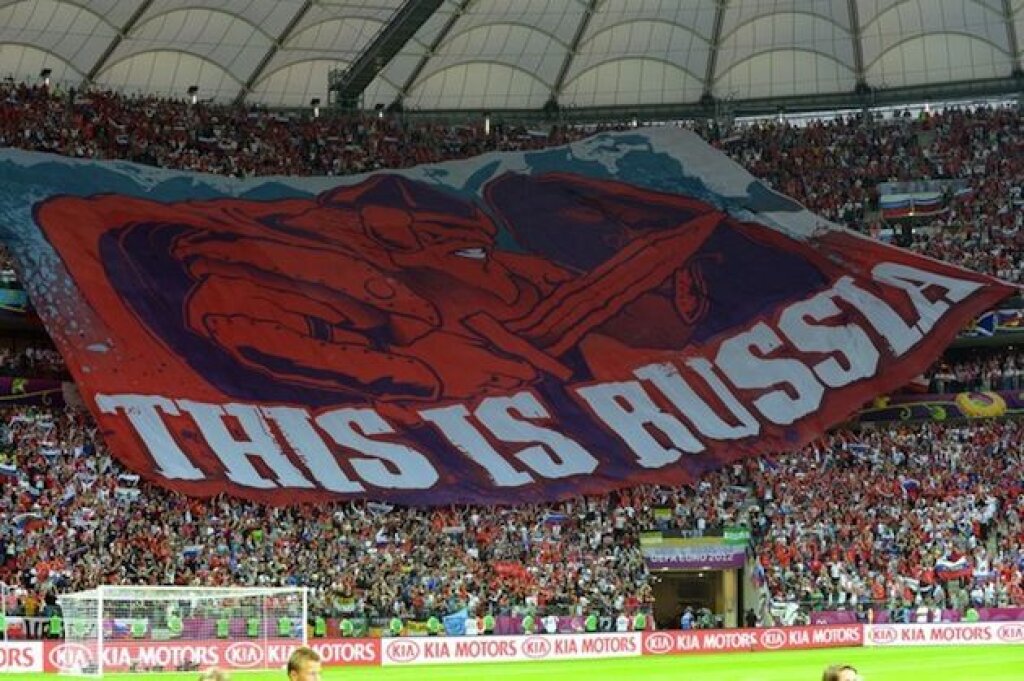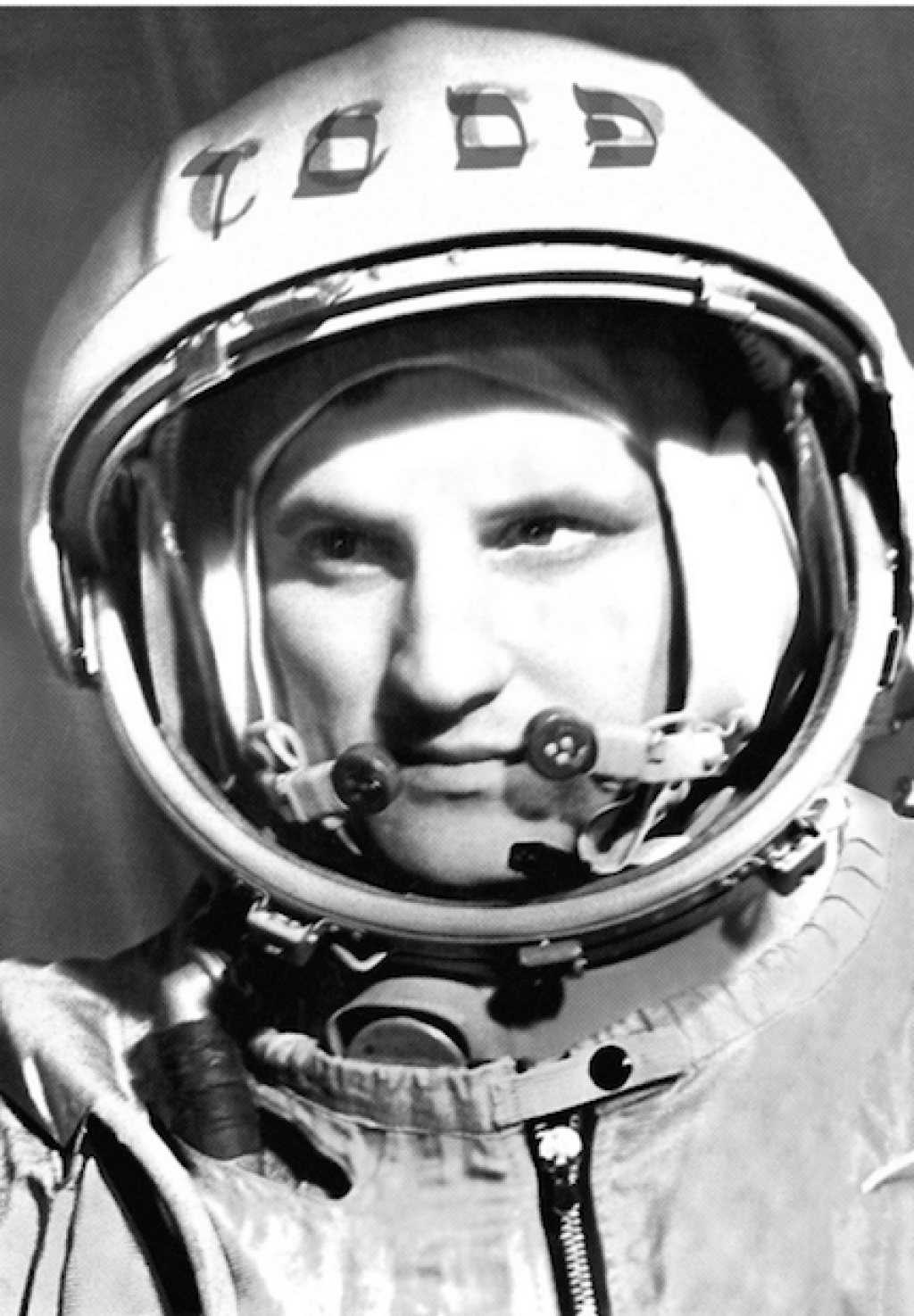This post is the final installment of Chapter 3 of Russia’s Alien Nations: The Secret Identities of Post-Socialism, an ongoing feature on All the Russias. It can also be found at russiasaliennations.org. You can also find all the previous entries here.
An earlier version of part of this chapter was originally featured on plostagainstrussia.org, as Chapter Four. It was not included in the final manuscript.
At the center of the Orc identity is one of the many varieties of contemporary Russian nationalism. This immediately raises the question of scale: whatever value judgments one might make about Russian nationalism, it is obviously a significant phenomenon—look no further than the separatist movement in Ukraine and the mobilization of support in the Russian Federation. By comparison, the Russian Orc is not just a niche category, but one that looks positively lightweight. What possible significance could arguments about fantasy characters have?
Readers of this blog will not be surprised at my assertion that such imaginary characters do have real meaning and weight. Starting with Plots against Russia, I have been using the materials I study in service of a broader thesis that I believe can only be proved by example: mass cultural is worthy of study not just because it reveals something about “real” culture and politics, but because the categories of mass culture have so colonized the popular consciousness that they themselves have a value as an interpretive framework. We should not just study pop culture using “proper” intellectual and theoretical categories, but we should see what happens when we look at politics and ideology using pop cultural narratives as our model.
Which brings us back to Orcs, and to Tolkien. The Orc phenomenon can be a case study of the role of nationalism in fandom. The connection between the two concepts is not original; Hailong Liu speaks convincingly of “the emergence of fandom nationalism,” using an aggressive Chinese social media campaign and cyberattack as a key example (Liu 2019). What I propose goes a few steps further. While fandom can certainly be understood in terms of nationalism, we have much to gain by considering nationalism as a variety of fandom.
What, after all, is “fandom?” Lori Hitchcock Morimoto and Bertha Chin note that Benedict Anderson’s notion of the “imagined community” (used to define a nation) has long been applied to fandom:
A central truism of English-language media fan studies is that modern fandoms are “imagined communities” fostered by technologies that enable geographically dispersed people to overcome time and distance in forging virtual communities of affect (in Gray, et al. Fandom. Second Edition).
Morimoto and Chin are more concerned with fandom’s ability to transcend the national, which is consistent with the general critical attention to transnationalism and alternatives to sovereignty. The kind of fandom I have in mind is an imagined community that, on the contrary, is devoted to national borders and the idea of sovereignty. Consider the definition of “participatory culture” (a variation on fandom) offered by Henry Jekins and his colleagues in 2009:
For the moment, let’s define participatory culture as one with
relatively low barriers to artistic expression and civic engagement,
strong support for creating and sharing creations with others,
some type of informal mentorship whereby what is known by the most experienced is passed along to novices,
members who believe that their contributions matter, and
members who feel some degree of social connection with one another (at the least, they care what other people think about what they have created) (Jenkins. “Confronting the Challenges of Participatory Culture” (2009)).
In other words, a fandom arises from the common interest and engagement of a group of people united by their commitment to a beloved object. The object, however, is not a clearly-defined, finite “thing;” more often than not, it is a storyworld, one that, even if it has a beginning, middle, and an end, can still be approached as open-ended. That storyworld could be Tolkien, it could be Star Trek. It could also be France. Or Russia.
Nationalism is fandom, and nationalists are fans of their nation.
Yes, this is an oversimplification, and even an offensive one. That is precisely the point. From the inside, nationalism is a locus of power and meaning, a metanarrative that explains and justifies the world in which the nationalist lives. From the outside, it can look ridiculous.
Consider the problem with studying fan cultures from the outside: even as we try to resist the temptation to look down on it, to the outsider, the concerns of, say, anime fan culture appear silly or unimportant (Is Avatar: The Last Airbender really anime? Which ending of Neon Genesis Evangelion is the “right" one, the last episodes of the television series or The End of Evangelion?). Then recall how easy it is to satirize the nationalist. Jonathan Swift mocks the conflict between France and England (and the two churches that each represent) as a fight between Big-Endians, who break the bigger parts of their eggs before eating them, and Small-Endians, who do the opposite.
Or, for that matter, Freud’s dismissal of conflicts between ethnicities or nations as the “narcissism of small differences.” His point is that, from a distance, the feuding sides look nearly identical, and the issues that divide them appear petty and absurd. He is not wrong, but he is also not entirely right: this assessment only works when one assumes an imagined privileged position that is somehow “above all that.” This is the position of someone who is unmoved, that is, someone who is not a fan. From this standpoint, the nationalist and the fan are always wrong by definition.
Just as there is obviously more than one way to be a nationalist, there is more than one way to be a fan. One of the central distinctions among fan communities has real explanatory potential when applied to the Russian Orc, and perhaps to nationalism more broadly. On one side we have the fan as he is is generally pictured by the outside world: the fan who is obsessed with the minutiae of his beloved storyworld, and who polices its boundaries with zeal that can appropriately be termed “fanatical.’ [1]. This is Comic Book Guy from The Simpsons, who will gladly correct anyone who cannot correctly rememberer exactly when Rogue joined the X-Men.[2] In a 2009 Livejournal post, a user calling herself “obsession_inc” called this “affirmational fandom;” six years later, LordByronic on Reddit proposed the term “curative fandom,” which has also come to be known as “curatorial fandom.” Whatever the name, this is a kind of fandom that prizes storyworld knowledge as lore, the fan equivalent of Biblical literalism in Christian circles and strict constructionism among legal scholars.
By contrast to what she sees as the male-dominated affirmation fandom, obsession_inc proposes “transformational fandom,” a primarily female community "all about laying hands upon the source and twisting it to the fans' own purposes, whether that is to fix a disappointing issue (a distinct lack of sex-having between two characters, of course, is a favorite issue to fix) in the source material, or using the source material to illustrate a point, or just to have a whale of a good time”. Transformational (or transformative) fandom prizes the creative activity of the fans themselves, whether that be fan fiction, critique, or art. For the transformational fan, fandom is about making meaning rather than simply parsing received wisdom.
The transformation/affirmational binary in fandom is inherently political, in ways that become even more obvious when we transpose it to the realm of the nation and ideology. Conservative nationalists the world over insists on their own particular narrative of the nation, built on key moments of triumph or martyrdom, but rarely guilt or shame. When liberals point out the mistakes or crimes that are part of the nation’s history (such as slavery in the American past and caging migrant children in the American present), they are accused of being unpatriotic, or even of hating their own country.
For the nationalist as affirmational fan, the country’s history consists of canonical events that cannot be questioned, only celebrated. In twenty-first century Russia, we see this approach most clearly when the narrative is challenged, whether it be the independent news channel TV-Rain daring in 2014 to ask if Leningrad should not have surrendered to the Nazis (and nearly being shut down as a result) or the outrage in 2015 when a distinguished Russian historian asserted that the story of Panfilov’s Twenty-Eight Guardsmen who died heroically fending Moscow in World War II was a myth. Culture Minister Vladimir Medinsky’s response sounded as though it rose out of the nationalist Unconscious while bypassing any filters:
It’s my deep conviction that even if this story was invented from the start to the finish, even if Panfilov never existed, even if there was nothing at all, it’s a sacred legend which it’s simply impossible to besmirch. And people who try to do that are total scumbags.
Medinsky’s slur is typical of affirmational nationalist fans the world over: to them, loving one’s country means subscribing to a canonical narrative and never deviating from it. Liberals are saddled with a more complicated story of patriotism, one that allows for history to be opened up, expanded, and questioned. This is a history that includes a country’s mistakes and crimes, and makes room for previous neglected voices. Patriotic liberals are transformational fans.
Just as proponents of the Russian Orc idea see particular relevance in the Ukrainian conflict, the affirmational/transformation fan dynamic proves enlightening when we turn to the Donbas. In Plots against Russia, I expanded on the idea expressed most notably by Dmitry Bykov, that the war in Ukraine was a “writers’ war,” one in which authors of bad military science fiction moved from fantasy to reality. But at least on the separatist side, it is also the violent, real-life expression of extreme affirmational fandom. After all, the separatist generals included men who had previously made a name for themselves in military reenactments. Donbass is a giant LARP with real-life casualties.
As for the Russian Orc, he occupies both ends of the affirmational/transformational spectrum at once. On the level of historical metanarrative, the Orc is as affirmational as they come. In terms of traditional fandom, however, the Russian Orc is a clear example of the transformational approach, reclaiming Tolkien for the fans’ own purposes. The Russian orc stands at the intersection of two different fandoms, Lord of the Rings and the Russian nationalist metanarrative, transforming the former for the greater glory of the latter.
Russia, then, can be Mordor and Motherland at the same time. If affirmational Tolkienists find such a reading mistaken, and if opponents of Russian nationalism or state policy consider it a slur, this hardly bothers the Russian Orc. The Russian Orc laughs at his enemies outrage, and Mordor does not believe in tears.
Next: Conclusion
Notes
[1] The choice of the male pronoun here is deliberate. And the etymological and historical connections between “fan” and “fanatic" are long established.
[2] It was issue 171, and I’m ashamed to say that I did not have to look this up.



